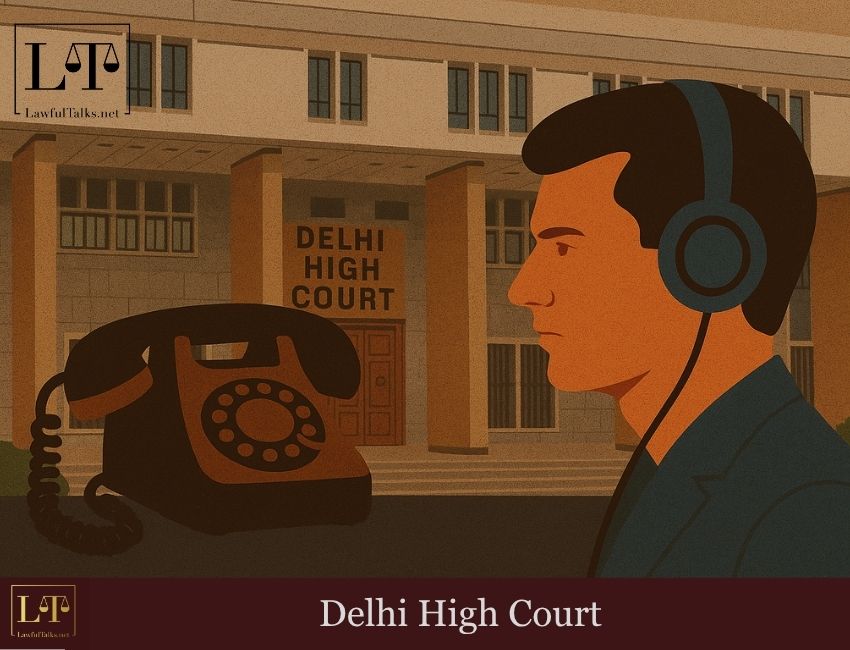Allahabad HC Sets Aside Afzal Ansari's Conviction, Allows Him to Continue as MP

“The economic scale of the offence, in the opinion of this court, satisfies the threshold of “public safety’’ stated the Delhi High Court, finding merit in the Central Bureau Of Investigation’s (CBI) assertion that corruption poses a risk on the economic well being of the country and its people. The plea that sought the quashing of intercepted calls and messages recorded by the Central Bureau of Investigation (CBI) was duly rejected.

Holding that allegations in the case were grave in nature , Justice Amit Mahajan dismissed the petition filed by one Aakash Deep Chouhan, who challenged the trial court’s charges under Section 120B of the Indian Penal Code (IPC) and Section 9 of the Prevention of Corruption (PC) Act, also seeking to quash the allegedly illegal call interceptions.
Facts:
The case arose from a CBI probe into allegations that the accused conspired to secure a lucrative steel work sub-contract for M/s. Capacite Structures Limited from M/s. Shapoorji Pallonji and Co. (P) Ltd., linked to a major redevelopment project awarded by M/s. NBCC (India) Ltd. According to the CBI, Pradeep Kumar Mishra, a public servant, demanded a new motorcycle as a bribe to sway senior NBCC officials.
It was further alleged that Rishabh acted as a go-between, conveying this demand to Sanjay Kulkarni, the Managing Director of Capacite, who agreed. Chouhan, employed under Sanjay, then allegedly bought the motorcycle and delivered it to Pradeep to facilitate the bribe.
Chouhan contended that the interceptions by the CBI were unlawful, carried out in violation of his fundamental right to privacy and safeguards under the Indian Telegraph Act. He argued that the evidence, including the calls, failed to establish any “grave suspicion” necessary to sustain charges against him.
Countering this , the CBI maintained that the interception orders were valid under Section 5(2) of the Indian Telegraph Act, satisfying the requirement of “public safety,” as corruption is an offence that threatens the country’s economic stability and puts its citizens’ well-being although the right to privacy is fundamental, it is not absolute and may be limited by law when necessary.
The Court pointed out that under Section 5(2) of the Telegraph Act, the Central or State Government, or officers specially authorised, have the authority to intercept communications in cases of public emergency or in the interest of public safety.
Agreeing with the CBI’s arguments, the Court noted “Corruption has a pervasive impact on a nation's economy and the same can impact anything from infrastructural development to resource allocation. Corruption by a public servant has far reaching consequences as it serves to not only erode public trust and cast aspersions on the integrity of public institutions, but also renders the public at large susceptible and vulnerable by threatening the economic safety of the country.”
Dismissing the petition, the Court concluded its judgment observing “ In a nutshell, at this stage, prima facie, the material on record including the calls cast grave suspicion against the petitioner which shows that even though he may not be the ultimate beneficiary to the offence, he was participating in the transfer of bribe despite knowing about the nature of the transaction. While the guilt of the petitioner would be ascertained in trial, at this stage, the conversations and the statement of the petitioner’s driver cast grave suspicion against him”
Case Title: AAKASH DEEP CHOUHAN v. CBI & ANR
Counsel for Petitioner: Mr. Vaibhav Dubey, Adv. (through VC) Mr. Kumar Vaibhav, Mr. Gautam Khazanchi and Mr. Mohd. Ashaab, Adv
Counsel for Respondents: Mr. Ravi Sharma, SPP-CBI with Mr. Swapnil Choudhary, Mr. Ishaan Bhardwaj, Mr. Shivam Mishra & Ms. Madhulika Rai Sharma, Advs. for CBI; Mr. Ripudaman Bhardwaj, CGSC with Mr. Kushagra Kansal and Mr. Amit Kumar Rana, Advs. for R2 / UOI





























































































































































































































































































































































































































































































































































































































































































































































